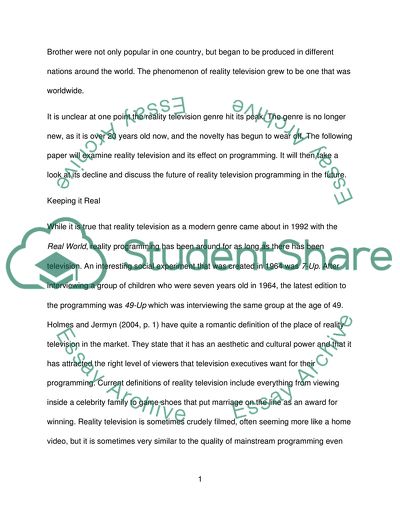Cite this document
(“Reality Television: Has the Novelty Worn Off Essay”, n.d.)
Retrieved from https://studentshare.org/visual-arts-film-studies/1471298-reality-television-has-the-novelty-worn-off
Retrieved from https://studentshare.org/visual-arts-film-studies/1471298-reality-television-has-the-novelty-worn-off
(Reality Television: Has the Novelty Worn Off Essay)
https://studentshare.org/visual-arts-film-studies/1471298-reality-television-has-the-novelty-worn-off.
https://studentshare.org/visual-arts-film-studies/1471298-reality-television-has-the-novelty-worn-off.
“Reality Television: Has the Novelty Worn Off Essay”, n.d. https://studentshare.org/visual-arts-film-studies/1471298-reality-television-has-the-novelty-worn-off.


